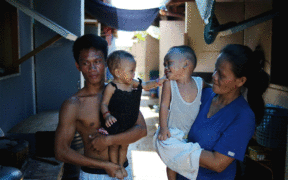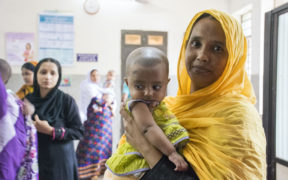Tag:
method continuation

In 2022, Knowledge SUCCESS collaborated with 128 Collective (formerly Preston-Werner Ventures) to conduct a rapid stock-taking exercise to document the impact of HoPE-LVB, an integrated Population, Health, and Environment (PHE) project in Kenya and Uganda. During a recent webinar, panelists shared how HoPE-LVB activities continue in the two countries.

Introducing our new blog series that highlights local research produced with support from the D4I project, 'Going Local: Strengthening Local Capacity in General Local Data to Solve Local FP/RH Development Challenges.'

Reproductive health advocates in the Philippines faced a tough 14-year long battle to turn the Responsible Parenthood and Reproductive Health Act of 2012 into a landmark law in December 2012.

This collection of resources helps program managers, government officials, and advocates to improve contraceptive security and supply chain management and logistics within health systems.

In November-December 2021, family planning and reproductive health (FP/RH) workforce members based in Asia convened virtually for the third Knowledge SUCCESS Learning Circles cohort. The cohort focused on the topic of ensuring continuity of essential FP/RH services during emergencies.

Ce dialogue politique virtuel a discutait les obstacles à l’utilisation durable de la contraception chez les jeunes et à créer des opportunités de collaboration entre les organisations dirigées par des jeunes, les journalistes et les jeunes chercheurs.

PACE convened a two-hour virtual policy dialogue on youth contraceptive discontinuation in West Africa on May 26, 2021. The event aimed to increase regional policymakers’ commitment to addressing the barriers to sustained contraceptive use among youth and forge collaboration opportunities for youth-led organizations, journalists, and young researchers.

Addressing obstacles to contraceptive continuation: The PACE project’s policy brief, Best Practices for Sustaining Youth Contraceptive Use, explores the unique patterns and drivers of contraceptive discontinuation among youth based on a new analysis of Demographic and Health Survey and Service Provision Assessment data. Key findings and recommendations include policy and program strategies to address obstacles to contraceptive continuation among young women who wish to prevent, delay, or space pregnancies.

These are the top 5 family planning articles of 2019 published in the Global Health: Science and Practice (GHSP) journal, based on readership.














